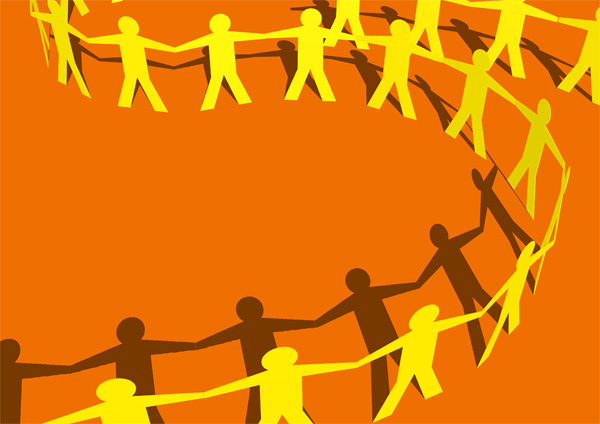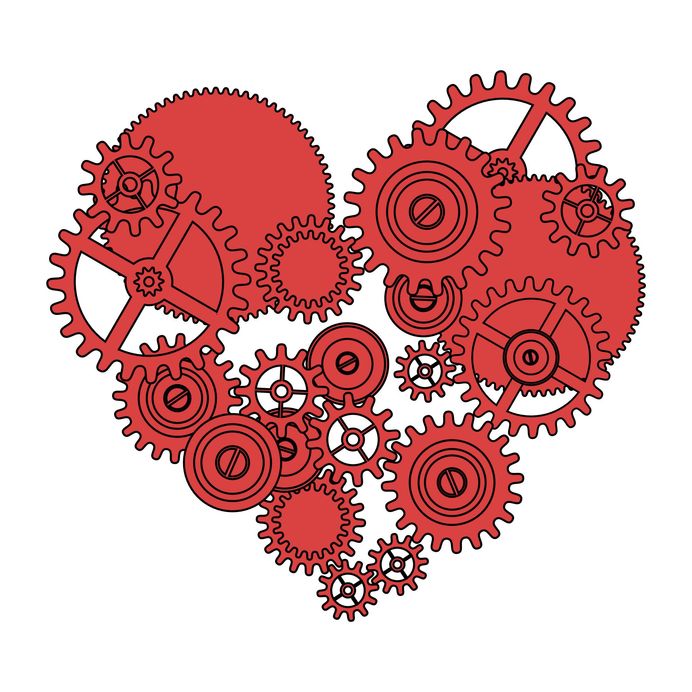Is having too much love – for family, for a partner, for one’s children – the biggest career mistake one can make?
 There has been a lot of talk about the gender bias at professorial level, with naturally the main explanation being that women take on additional childcare responsibilities at the cost of their careers. However, in talking to a colleague recently, we noted that whether male or female those around us who publish and achieve most are often those who work without the “hindrance” of relationships, especially with spouses or partners, but also with children or ailing parents or grandparents.
There has been a lot of talk about the gender bias at professorial level, with naturally the main explanation being that women take on additional childcare responsibilities at the cost of their careers. However, in talking to a colleague recently, we noted that whether male or female those around us who publish and achieve most are often those who work without the “hindrance” of relationships, especially with spouses or partners, but also with children or ailing parents or grandparents.
 The economist David Friedman has described relationships as a market within which we buy and sell – though as the Beatles knew, it’s not money that buys you love but rather the time that you invest. And with the average working week in academia being 60 or so hours, time is something that is in short supply. Of course, there are also plenty of academics who seem to manage this scarce resource brilliantly, who are great parents, close-knit spouses, or who dutifully look after ailing relatives, all the while turning out incredible research and teaching. Furthermore, not every successful relationship is built upon spending lots of time within a family, and there are plenty of couples, in which one or both are academics, who successfully live and work apart during intense working weeks but compensate with brief but quality time at weekends.
The economist David Friedman has described relationships as a market within which we buy and sell – though as the Beatles knew, it’s not money that buys you love but rather the time that you invest. And with the average working week in academia being 60 or so hours, time is something that is in short supply. Of course, there are also plenty of academics who seem to manage this scarce resource brilliantly, who are great parents, close-knit spouses, or who dutifully look after ailing relatives, all the while turning out incredible research and teaching. Furthermore, not every successful relationship is built upon spending lots of time within a family, and there are plenty of couples, in which one or both are academics, who successfully live and work apart during intense working weeks but compensate with brief but quality time at weekends.
 Despite these successes, though, making the calculation between work and relationships is never easy, and wealth in one may result in poverty in the other. Now four years post-PhD, like many early-career scholars I have had to take some careful decisions in managing my capital, balancing between the hard cash I need to live, the time I invest in work and, ultimately most important to me, the emotional coinage of a marriage (hopefully with children attached in the coming years). I am fortunate to be employed two-thirds full time at one university, and to have part-time work at another. I’m materially well off, if not entirely secure. Although my jobs are largely teaching only and so I don’t have access to all the resources – such as conference attendance funds – that I might ideally like, one thing I do have is time, or at least flexibility to work on my relationships within and alongside the demands of my working roles.
Despite these successes, though, making the calculation between work and relationships is never easy, and wealth in one may result in poverty in the other. Now four years post-PhD, like many early-career scholars I have had to take some careful decisions in managing my capital, balancing between the hard cash I need to live, the time I invest in work and, ultimately most important to me, the emotional coinage of a marriage (hopefully with children attached in the coming years). I am fortunate to be employed two-thirds full time at one university, and to have part-time work at another. I’m materially well off, if not entirely secure. Although my jobs are largely teaching only and so I don’t have access to all the resources – such as conference attendance funds – that I might ideally like, one thing I do have is time, or at least flexibility to work on my relationships within and alongside the demands of my working roles.
In my own circumstances, I certainly need to spend quality time away from the desk to reinforce my relationships. Yet I find myself loathe to stand up in the room of academics anonymous, be counted, and admit I have a “time off” problem – that is to say, my family and friends want me to have some, because work is usually, selfishly about me alone. My reluctance, which I suspect is not unusual, shows the academic’s awareness of the unwritten code for employment, one you’ll never see in a person specification but that is the ultimate essential for a job: that you must love what you do.
 Love what you do, the thinking goes, and you will be prepared to cope with the long and erratic hours and incessant demands of academic life; love what you do, and you’ll put in the weekend in the library for that journal article, when the rest of your family are out enjoying the sunshine; love what you do, and you’ll deal with that problem student one-on-one, enhancing their “experience” at the expense of attending your kid’s school play. “Love what you do” has become the mantra by which employers can extract more from us for less, whilst soothing us with the belief that it’s work that’s actually paying us back in the coinage of passion. Do more stuff, more work, and the love will follow. And if it doesn’t, then would you please make way for one of the surplus reserve of post-PhD graduates who would love to do what you clearly don’t love to do enough …
Love what you do, the thinking goes, and you will be prepared to cope with the long and erratic hours and incessant demands of academic life; love what you do, and you’ll put in the weekend in the library for that journal article, when the rest of your family are out enjoying the sunshine; love what you do, and you’ll deal with that problem student one-on-one, enhancing their “experience” at the expense of attending your kid’s school play. “Love what you do” has become the mantra by which employers can extract more from us for less, whilst soothing us with the belief that it’s work that’s actually paying us back in the coinage of passion. Do more stuff, more work, and the love will follow. And if it doesn’t, then would you please make way for one of the surplus reserve of post-PhD graduates who would love to do what you clearly don’t love to do enough …
Breaking this vicious cycle requires us to point out its semantic error. Those four letters, “love”, signify a whole range of meanings, but in its purest sense – the sense that hits you in the body, that sends the hormones coursing through the bloodstream – love is not what happens when at work. Love is not what happens when a PhD student talks enthusiastically about his or her thesis. Love is not what happens in a chemistry lab when an experiment finally turns out the results you need. Love is not discovering a great novel in the course of one’s research. Love is not sitting in a seminar and being inspired by what you hear. Love is not that buzz you get when the veil suddenly drops from the face of a classroom, and the students get that tricky concept you’ve been teaching. These tremendous things come under many names – engagement, insight, intellectual excitement, reward. But love, in its original sense, is not one of them.
 Love is what happens in spite of ourselves, not because of something we’ve chosen to do. Love is what happens when in response to a sudden phone call you instinctively drive two hundred miles to a hospital, where a relative lies critically ill. Love is what happens to the parent whose child unexpectedly catches their eye and makes them to blubber with pride. Love is that wife, husband, partner who is still standing beside you when jobs, money, material possessions, have been stripped away. I am thrilled by my research; I will bust a gut to help my students. But I have never encountered these sorts of feelings of love when buried in a journal paper, stuck in a library, or fronting a classroom. Only in moments of exquisite suffering, need or desire does love makes its full presence felt.
Love is what happens in spite of ourselves, not because of something we’ve chosen to do. Love is what happens when in response to a sudden phone call you instinctively drive two hundred miles to a hospital, where a relative lies critically ill. Love is what happens to the parent whose child unexpectedly catches their eye and makes them to blubber with pride. Love is that wife, husband, partner who is still standing beside you when jobs, money, material possessions, have been stripped away. I am thrilled by my research; I will bust a gut to help my students. But I have never encountered these sorts of feelings of love when buried in a journal paper, stuck in a library, or fronting a classroom. Only in moments of exquisite suffering, need or desire does love makes its full presence felt.
 Perhaps I’ve fallen out of love with academia, and like a messy romance I can’t live without it whilst not enjoying living with it. Perhaps this puts me in a minority – but I don’t think so. The comments elsewhere on this blog, on issues such as mental health, suggest I’m not alone. And if I’m not alone, here’s a romantic proposal. Let’s recognise that it is something other than love that we experience in the office, the library or the lab. Let’s tell our employers and peers that we live within familial and friendship networks and that these come before we put in those extra, unpaid hours. Let’s take the time off from work and invest it in the relationships that matter. Let’s recognise that work is what we do as academics, but that love most defines who we are as human beings.
Perhaps I’ve fallen out of love with academia, and like a messy romance I can’t live without it whilst not enjoying living with it. Perhaps this puts me in a minority – but I don’t think so. The comments elsewhere on this blog, on issues such as mental health, suggest I’m not alone. And if I’m not alone, here’s a romantic proposal. Let’s recognise that it is something other than love that we experience in the office, the library or the lab. Let’s tell our employers and peers that we live within familial and friendship networks and that these come before we put in those extra, unpaid hours. Let’s take the time off from work and invest it in the relationships that matter. Let’s recognise that work is what we do as academics, but that love most defines who we are as human beings.
Our work can never love us back. It cannot visit us when we are recovering from an operation, or shielding from COVID-19. It cannot bring us the pleasure of touch, of home-cooked food, of travelling across the country to take us on a day out. It cannot comfort us when we are grieving, or share a meal with us to celebrate. We can enjoy our work very much, but it is just that, work.
Personally I feel the toxic culture that exists within academia is fuelled by some people’s overwork. It raises the bar to an unrealistic level that punishes those who have caring responsibilities, disabilities, or who just want to live.
Life has so many pleasures, and our relationships and intimate connections with others are at the top. I spend as much time as possible with my family and friends and spend 40 hours a week working.
On my death bed very little will matter bar the love I gave and received.